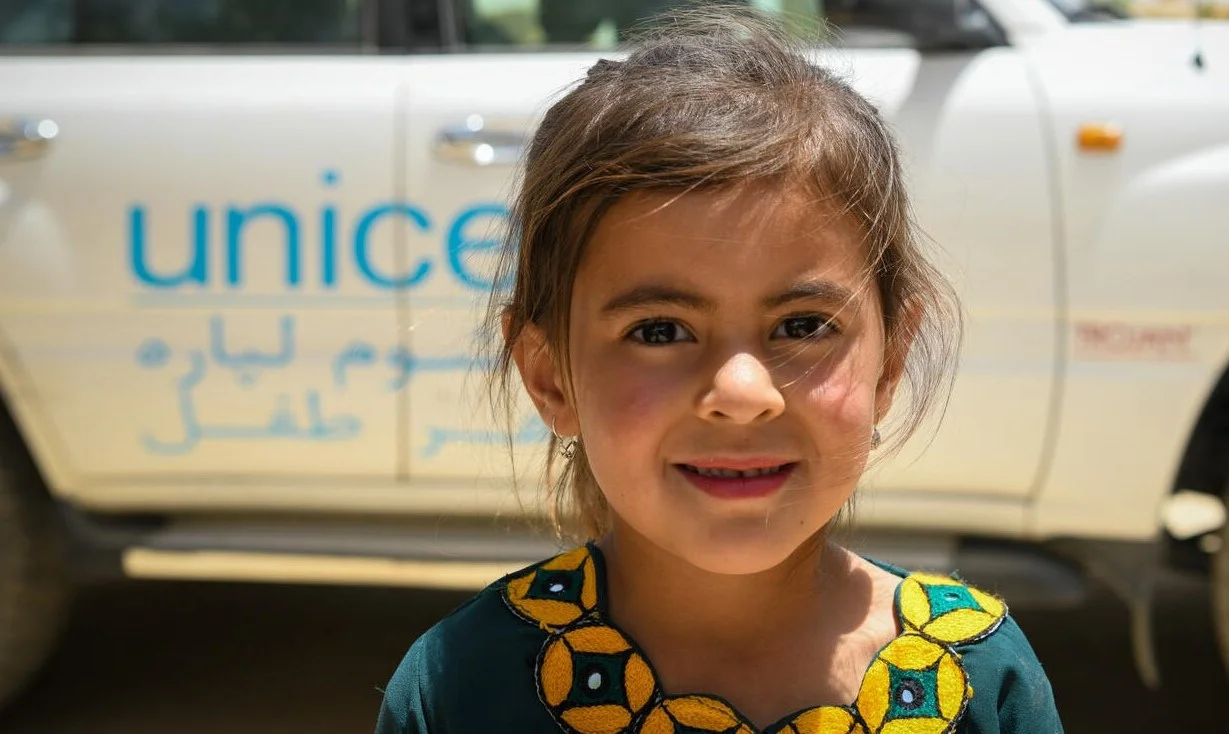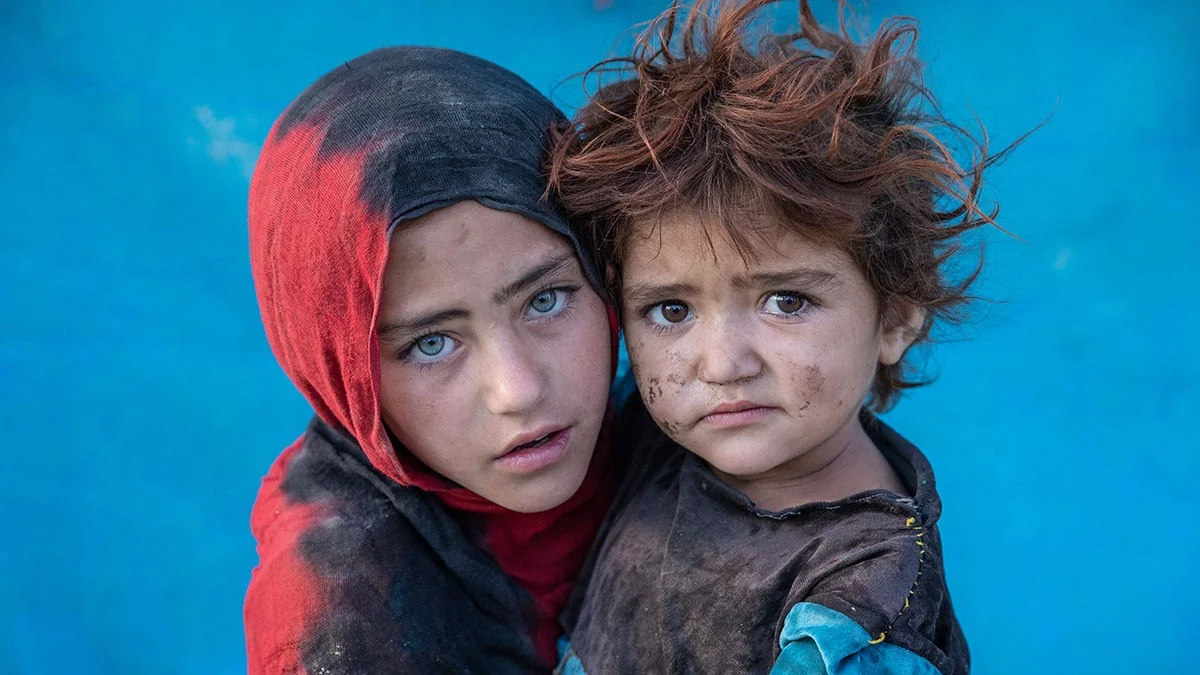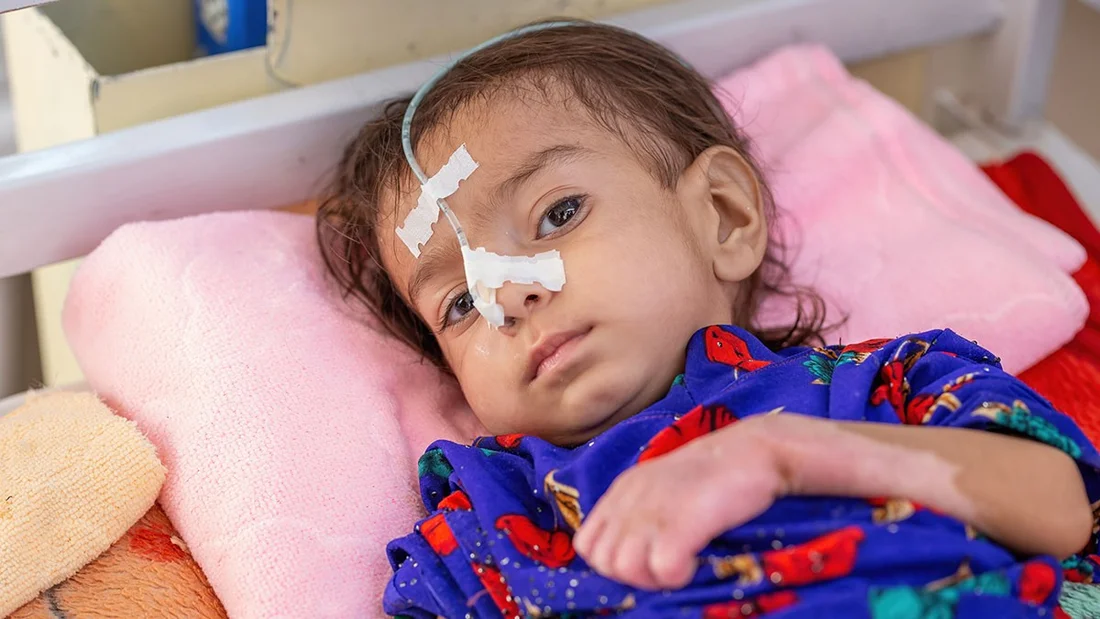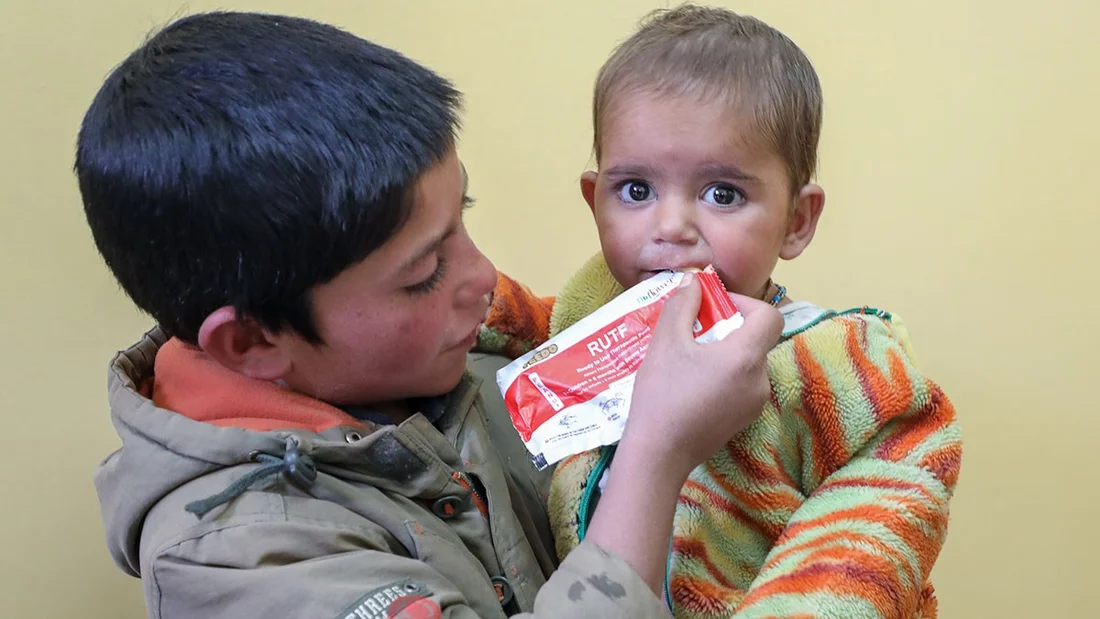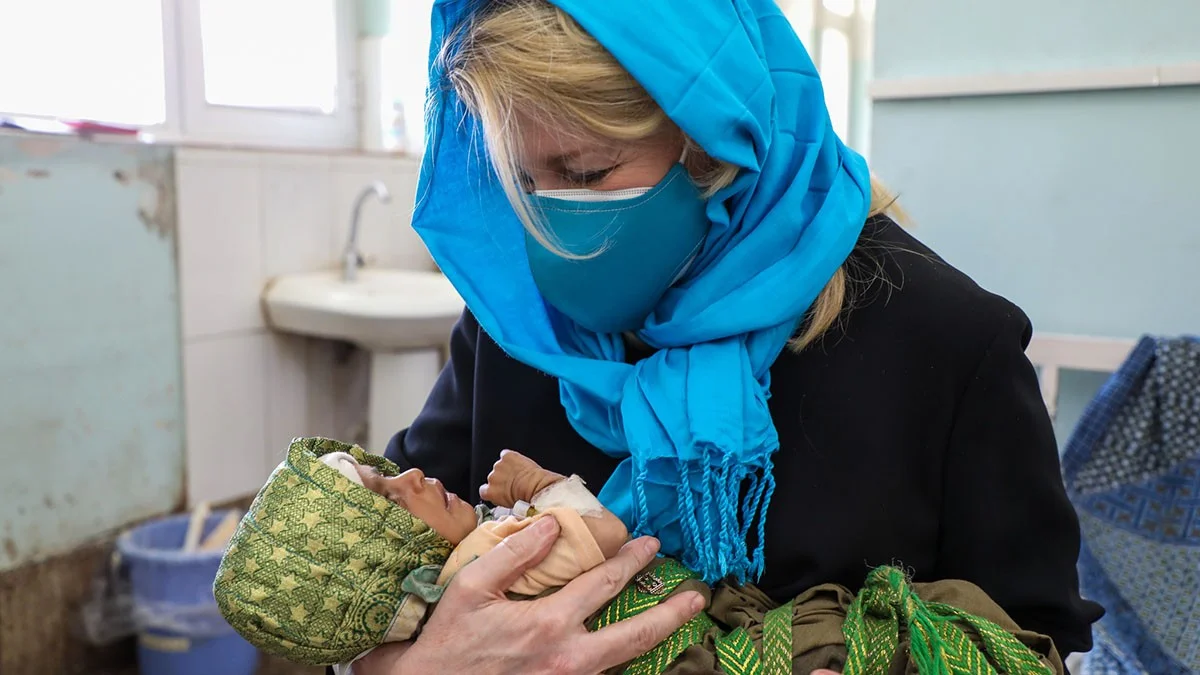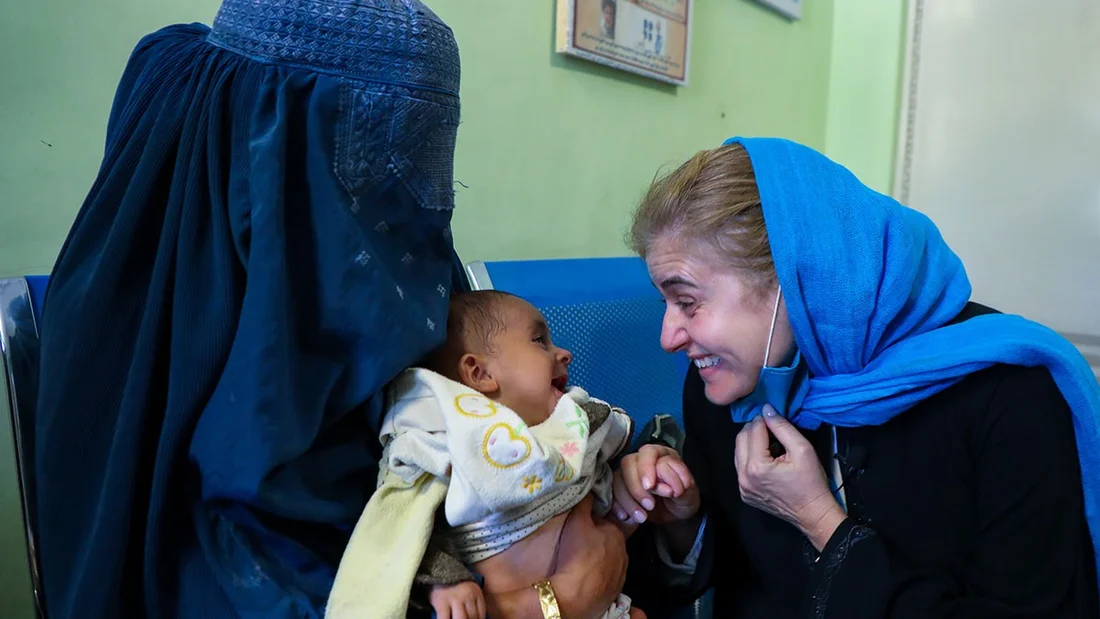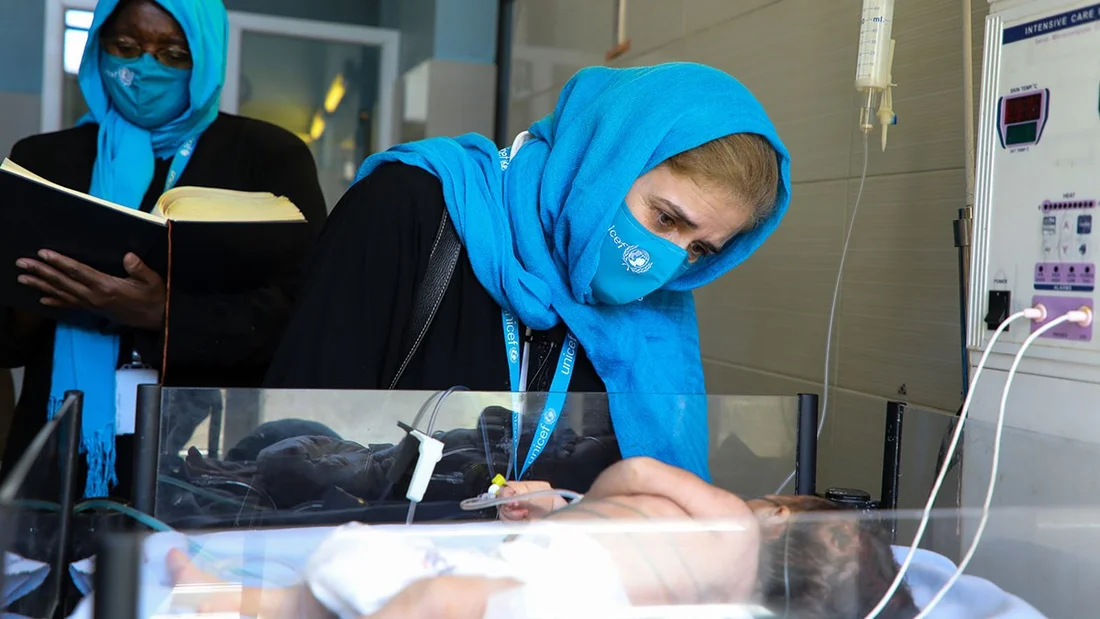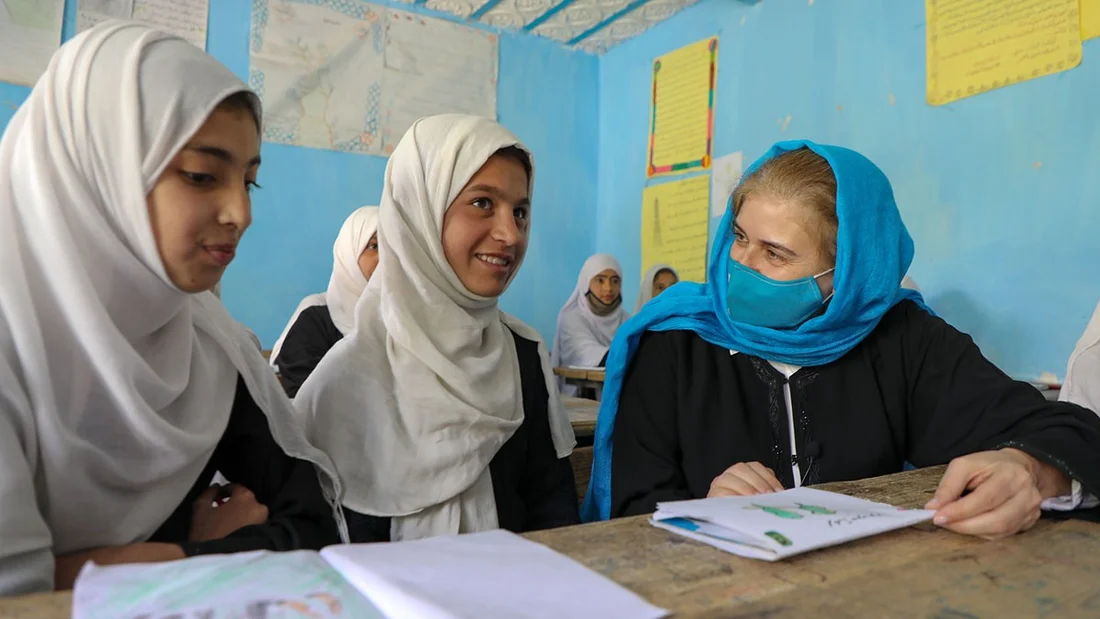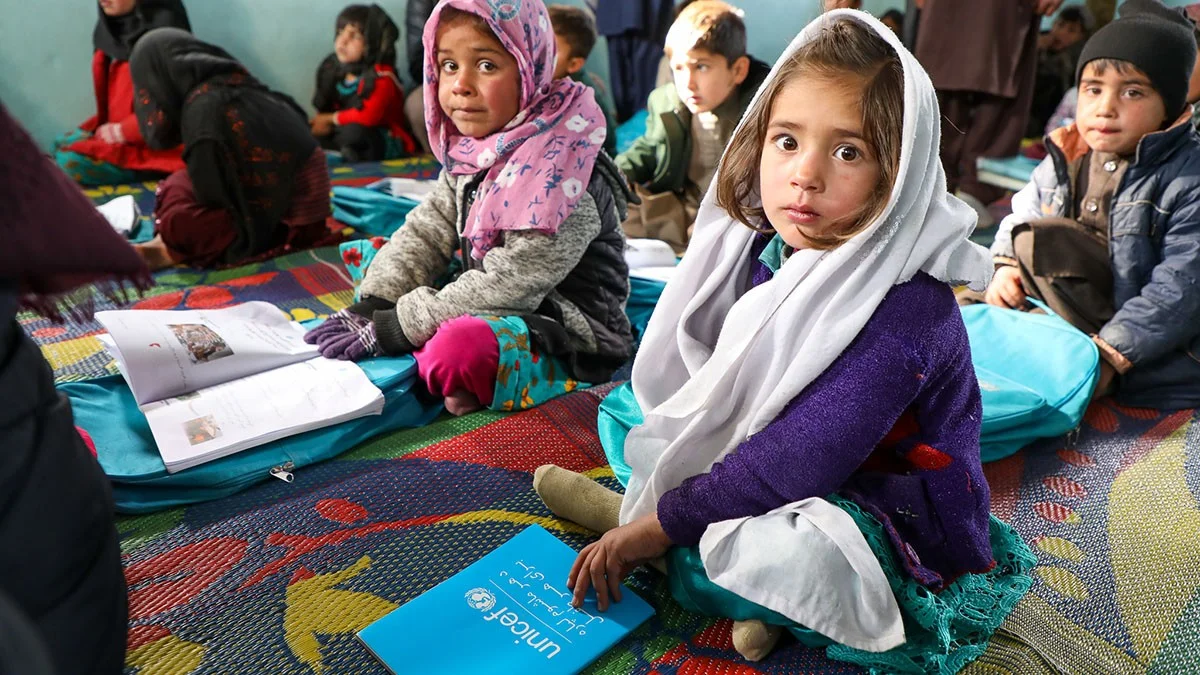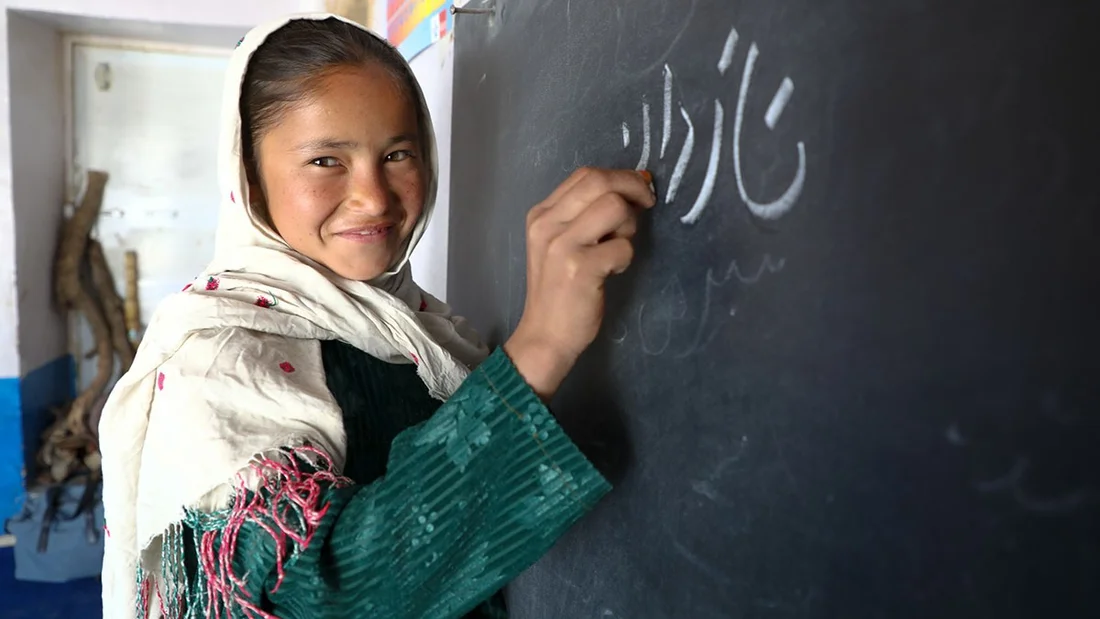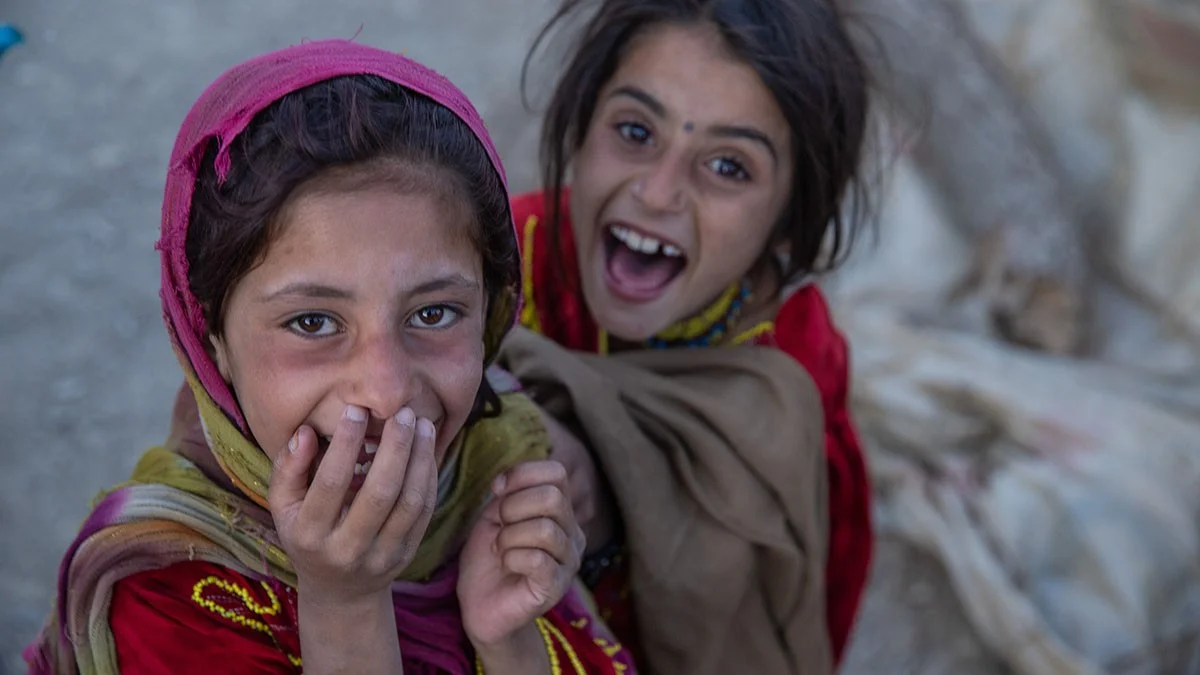Living conditions for the Afghan population were already deteriorating dramatically even before the regime changed around a year ago, but worsened still further after the Taliban came to power in August 2021. Around 24.5 million people, including 13 million children, are in urgent need of humanitarian aid. The ongoing drought, economic crisis and systematic oppression of girls are taking a terrible toll on children and their families. UNICEF’s Executive Director Catherine Russell and Director for Global Communication and Advocacy Paloma Escudero visited the country and shared their experiences.
Bread and water for the whole family
Afghanistan is currently experiencing its worst drought in almost 40 years. Crops have been destroyed, and food prices are skyrocketing. The war in Ukraine is further exacerbating the country’s precarious food situation. 24 million people are in poverty, with the youngest among them also the worst affected. 13 million Afghan girls and boys are in urgent need of humanitarian aid. UNICEF estimates that a million children will be affected by acute malnutrition by the end of 2022. If they do not get help fast, they could die.
The economic crisis in Afghanistan is also having a devastating impact on day-to-day life. When the majority of foreign aid funding was frozen in 2021, key services collapsed and sources of income slipped away. Amid rising unemployment, 93 percent of all households currently face a high level of food insecurity.
In February 2022, UNICEF Executive Director Catherine Russell gained an overview of the situation on the ground in rural Afghanistan. “The suffering is overwhelming. Families are being crushed by poverty and hunger. A 25-year-old mother of five told me that her family subsists on a diet of bread and water”, said Russell.
Access to basic services, including healthcare, is also deteriorating. According to the World Health Organization, around 18.1 million people are in need of medical care, including 3.2 million children under the age of five. Malnutrition is soaring. Catherine Russell discovered this for herself during her visit to a UNICEF-supported hospital in Kandahar that treats children with severe acute malnutrition. She describes her encounter with the three-month-old girl Wahida as follows: “I saw emaciated babies, too weak to cry, and mothers who were also badly malnourished. When I held her, I could barely feel the weight of her in my arms.”
Paloma Escudero, UNICEF Director for Global Communication and Advocacy, visited Paktia Regional Hospital in Gardez in April 2022. There she met Sayera, the mother of six-month-old Rana, who was suffering from acute malnutrition and needed immediate treatment. “Sayera told me her family eats bread and tea for breakfast, and rice and potatoes for lunch and dinner: the only staples they can afford.”
This family is among the 90 percent of households in Afghanistan that do not have enough to eat. To counteract this, UNICEF, together with WHO, is supporting more than 2,300 health facilities, providing key basic medical supplies, paying health workers’ salaries and conducting training. Escudero said that the hospital director, Dr. Zaheer, asked her to convey one message upon her return home: “What is being done for these children would not have been possible without the support of the international community.”
School education, but not for everyone
Paloma Escudero’s trip then took her to Halima Khazan School, also in Gardez, where she talked to the teaching staff, the principal and the 2,000 girls and 460 boys about school life, their aspirations and their goals. “I asked the girls for their favorite things to draw (horses!), and their favorite subjects (writing!). Two girls skipped to the front of the room to show us their skills. Their joy for school and learning was so palpable that it made me catch my breath. We don’t yet know if these wonderful, studious girls will be able to graduate to Grade 7.”
At the time of her visit to Gardez, girls of secondary school age were still unable to attend school. Although various declarations by the de facto authorities indicate that the decision banning girls from attending school is to be reversed, the conditions for this to happen are not yet clear. A total of 4.2 million children are currently not attending school. Despite the restriction, however, secondary schools remain open for girls in nine of Afghanistan’s provinces. Nevertheless, the Taliban’s decision to close secondary schools for girls is a serious setback. An estimated 1.1 million adolescent girls, as well as future generations of girls, are being denied the right to education.
Source of hope
UNICEF has been on the ground for more than 65 years and advocates exclusively for children in its work. That is why the United Nations Children’s Fund continues to lobby the de facto government to restore education for girls. UNICEF has massively expanded its aid in recent months in conjunction with a broad network of partners. 2.3 million girls continue to attend primary school. “This is a source of hope”, says Sam Mort, Chief of Communication, Advocacy and Civic Engagement for UNICEF Afghanistan. “What inspires us is the demand for education, from children and their parents across the country, for girls and boys.”
A total of 9.3 million children are currently attending school, including 3.6 million girls. In 2001, the figure was just 1 million. This progress must not be reversed now. “We cannot give up on these children”, said Paloma Escudero after her trip. “Schools are more than a place to learn. In these difficult times, they are a safe space for girls and boys, a place with clean water and food. A shelter from the street, from harm.”
Children must come first
“In Afghanistan, I heard stories of suffering but also stories of hope”, said Catherine Russell about her stay in Afghanistan. “Children are so resilient and can often bounce back, no matter the hardships. They just need support. We owe it to the Amiraans and Wahidas of this world to give them the help they need to achieve the potential they are capable of.” UNICEF teams on the ground go above and beyond to help children learn, stay healthy and feel protected. However, we still need support in order to provide the best possible aid for children.
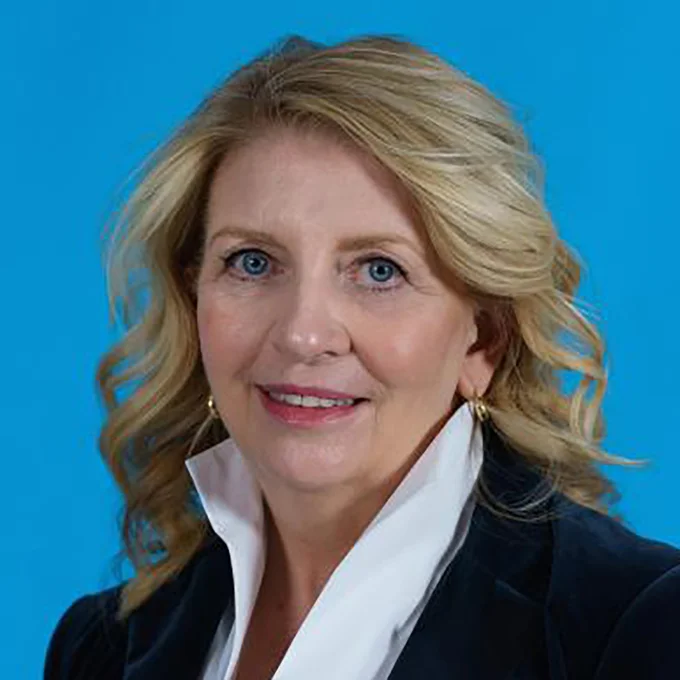
“We need political will. We need a clear commitment from everyone to always put children first.”
Over the past six months, UNICEF has been working with other partners to provide access to clean water, food, health services and education.
To enable UNICEF to carry out its work effectively, we still need funding in order to provide acute aid to children and families in need. It is particularly important that the international community, the de facto authorities and community leaders work together to give these children a chance of a dignified childhood.
